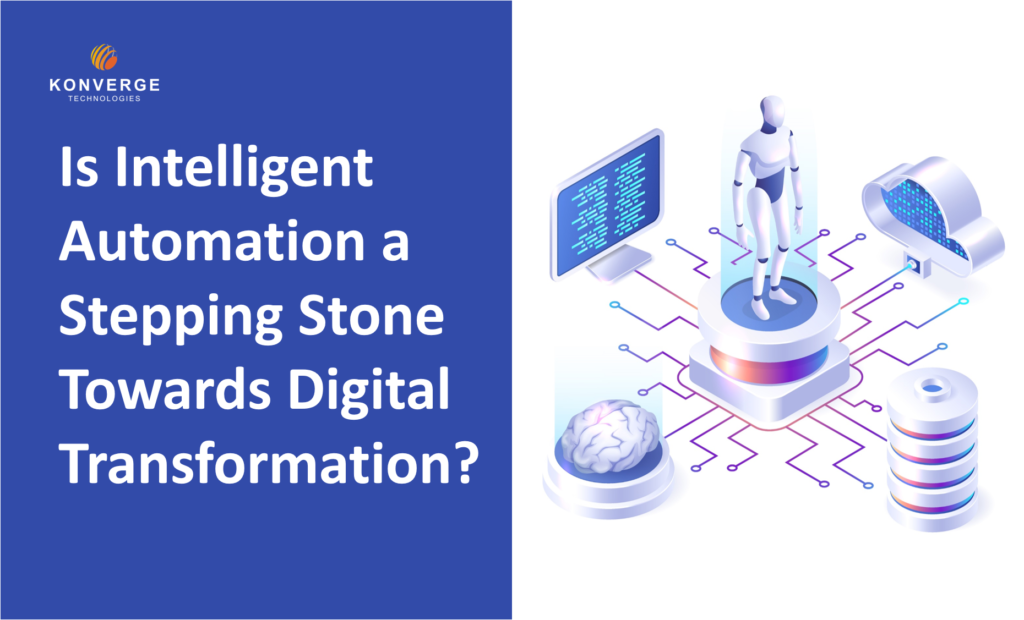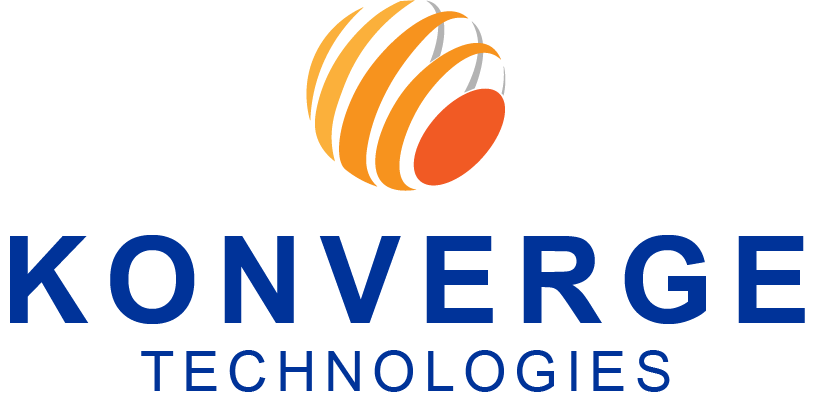
Is Intelligent Automation a Stepping Stone Towards Digital Transformation?

During the pandemic, business executives accelerated their digital transformation initiatives. They had to do that to continue working. Companies deployed digital tools to handle work-from-home demands and negotiate strained supply networks in the face of unprecedented uncertainty. Customers now anticipate better products, more individualized services, and rapid reaction times due to the accessibility of the new cloud, social, mobile, and AI technologies. Companies automated as many manual business procedures as possible to meet these elevated demands.
The driving force behind the digital revolution across all industries and enterprises is Intelligent Automation (IA), a term first used in 2017. Intelligent automation has a lot in store for businesses, whether small or enterprise, B2B or B2C, with emerging technologies.
Intelligent Automation (IA) creates end-to-end business processes that learn, and adapt on their own by combining Robotic Process Automation (RPA) with cutting-edge technologies like Artificial Intelligence (AI), Analytics, Intelligent Character Recognition (ICR), Optical Character Recognition (OCR), and Process Mining. Hyper-automation and Intelligent Process Automation (IPA) are other terms for Intelligent Automation.
Any business inside an organization can benefit from using intelligent automation technologies to promote digital transformation of business. These consist of:
- Enhanced Productivity and Efficiency
- Lower Costs
- Enhanced Client Experience
- Increased Inventiveness
- Improved Quality Assurance
1. Enhanced Productivity and Efficiency
Less time is spent on manual labor due to task automation, which also enhances workflow. Higher levels of employee performance and workplace productivity may arise from this. Tt replaces everyday office duties like manual data extraction and filing with intelligent document processing (IDP). Regardless of the data type, IDP synchronizes and processes documents more quickly, increasing productivity and effectiveness at work. The banking, legal, healthcare, and logistics sectors are some of the most well-known IDP users. RPA technology also mimics repetitious human orders to boost productivity simultaneously as cost- and time-saving measures.
2. Lower Costs
Your business expenditures can be decreased with automation. That’s because technology does not require humans to carry out certain activities.
Additionally, it enables remote management of dispersed teams worldwide from a single hub. This reduces expenses and frees up stretched resources for other essential purposes. Technology behemoths like Amazon, Intel etc regularly incorporate AI and RPA into their IT architecture which helps provide a quick and improved client experience at reasonable prices.
3. Enhanced Client Experience
To compete in the digital era, businesses must deliver outstanding consumer experiences. Intelligent automation can assist you in achieving this by automating processes that ordinarily need human interaction, such as responding to consumer inquiries or complaints.
Your staff will have more time for other crucial activities, like connecting with and building customer relationships. This increases your level of client satisfaction (CSAT).
Additionally, it improves the efficiency of even the most fundamental routine tasks. This enhances your overall customer experience while assisting you in achieving your financial and non-financial goals.
4. Increased Inventiveness
Constant innovation and keeping up with technological developments are two of the most crucial components of prospering in the digital age. Employees at companies must continually come up with innovative and inventive ways to outshine rivals.
Of course, intelligent automation allows you to do this by giving employees more time to concentrate on other jobs that demand higher levels of invention and creativity. Your staff may focus on ground-breaking business initiatives and innovations thanks to IA.
5. Improved Quality Assurance
Your firm may closely monitor operations by utilizing intelligent automation. Overall, this results in improved quality control and increased productivity. IA decision engines also use RPA in work processes that result in profitable business outcomes.
In other words, implementing IA solutions into your regular company activities leaves less opportunity for error. Before instructing RPA bots to automate related operations, iA decision engines utilize machine learning and deep learning to investigate patterns and analyze pertinent data. iA decision engines provide authentic knowledge and data analysis in process automation.
How Can Intelligent Automation Help Enable Digital Transformation?
Now that you’ve read about the benefits of using intelligent automation for enterprise digital transformation, let’s look at how it can enable digital transformation at your organization.
By automating tedious operations and enhancing customer experiences, intelligent automation solutions help accelerate digital transformation. Your company will save time and drastically reduce costs as a result.
Automate Manual Processes
Automating manual procedures and repetitive chores is crucial to digital transformation. What if, for instance, your business still collects data from potential clients or consumers via paper forms? These procedures need to be automated with iA to be digitized.
Decision engines can be used in financial and accounting organizations to automate human invoice checks and compliance evaluations. RPA, for instance, can extract data from invoices, sort them, and then put them in the proper order for intelligent automation.
Improve Customer Experiences
Improving customer experience is essential for supporting digital change. Intelligent automation, for instance, can be used to automate routine jobs like accepting phone orders and responding to frequently asked inquiries. All pertinent client issues and interactions can be analyzed using intelligent automation.
Simultaneously tailoring several client experiences will be beneficial. Significant advantages include shorter customer response times and higher customer satisfaction.
You must understand that intelligent automation goes beyond reducing employees or increasing profits. It’s intended to be a tactical procedure. Additionally, it facilitates company optimization and operational efficiency. Finally, a thorough digital strategy is required to support intelligent automation.
Recent Posts




